That morning ritual of sipping a warm cup of coffee can feel like a lifeline—but pregnancy changes the rules about what’s safe to consume. “Can I have decaf coffee while pregnant?” ranks among the most frequently asked questions by expectant mothers who miss their daily brew. While regular coffee is typically limited due to its high caffeine content, decaffeinated options present a potential solution for coffee lovers navigating the nine-month journey.

This guide explores the truth about decaf during pregnancy, cutting through myths and providing evidence-based information to help you make confident choices that balance your coffee cravings with your baby’s wellbeing. Let’s dive into what science says about enjoying that familiar coffee taste during this special time.
Table of Contents

Is Decaf Coffee Safe During Pregnancy?
The Facts You Need
Many pregnant women wonder if decaf coffee is a safe alternative to regular coffee during pregnancy. The good news is that decaf coffee is generally considered safe for expectant mothers when consumed in moderation.Decaf coffee undergoes a process that removes about 97% of the caffeine found in regular coffee. This means a typical 8-ounce cup of decaf coffee contains approximately 2-5 mg of caffeine, compared to the 95-200 mg in regular coffee.
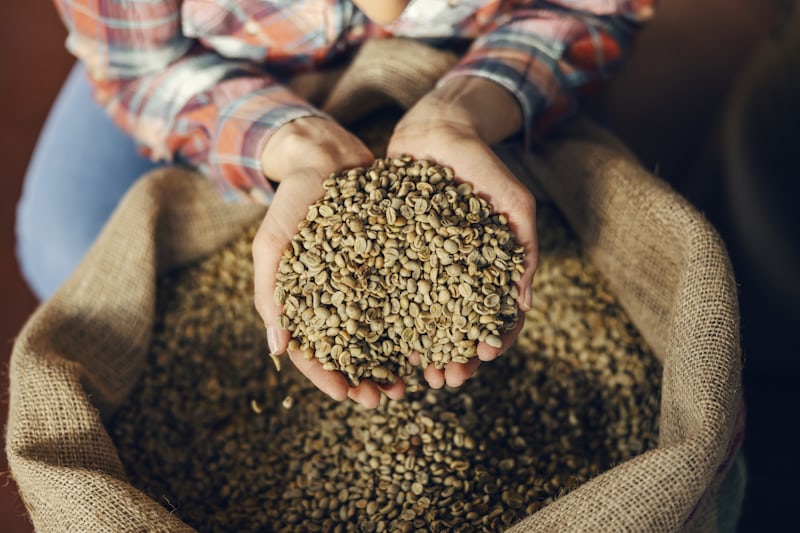
The American College of Obstetricians and Gynecologists (ACOG) recommends limiting caffeine intake to less than 200 mg per day during pregnancy.While decaf coffee significantly reduces your caffeine exposure, it’s important to remember that it’s not completely caffeine-free. For most pregnant women, having 1-2 cups of decaf coffee daily is unlikely to exceed the recommended caffeine limits. However, the decaffeination process sometimes uses chemical solvents, which raises concerns for some. If this worries you, look for decaf coffee that uses the Swiss Water Process, which removes caffeine without chemicals.
Always consult with your healthcare provider about your specific situation, as individual pregnancy circumstances can vary. They can provide personalized advice based on your health history and pregnancy needs.
Caffeine Content in Decaf: What Expectant Mothers Should Know
Despite its name, decaffeinated coffee isn’t completely caffeine-free. Understanding the actual caffeine content in decaf is crucial for pregnant women monitoring their intake.
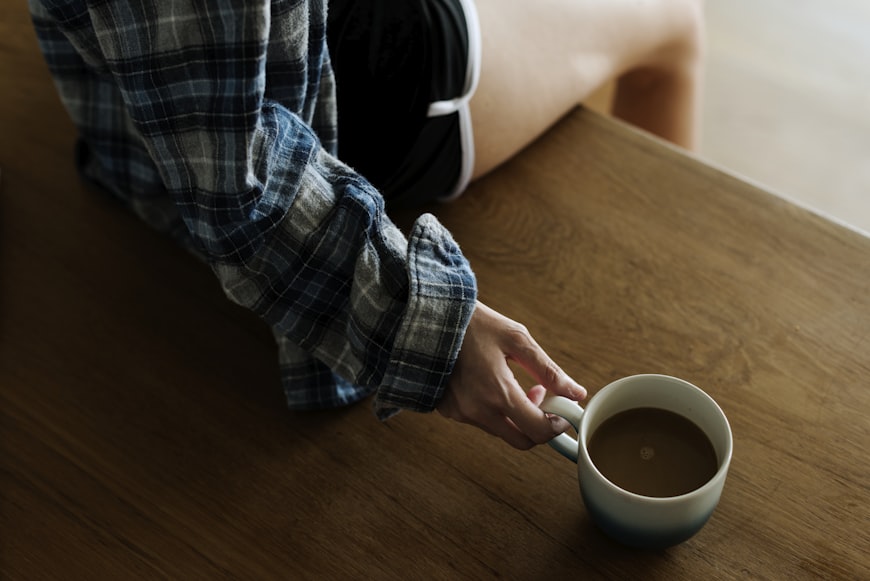
A standard 8-ounce cup of decaf coffee typically contains between 2-5 mg of caffeine, compared to regular coffee which contains about 95-200 mg per cup. This represents a reduction of approximately 97% of caffeine content.For perspective, here’s how decaf compares to other common caffeine sources during pregnancy:
- Decaf coffee (8 oz): 2-5 mg
- Regular coffee (8 oz): 95-200 mg
- Black tea (8 oz): 40-70 mg
- Green tea (8 oz): 25-45 mg
- Dark chocolate (1 oz): 12 mg
The decaffeination process can vary between brands, which means the exact caffeine content might differ slightly. Some premium decaf coffees may remove even more caffeine, while lower-quality products might retain slightly more. If you’re particularly sensitive to caffeine or have been advised to strictly limit your intake during pregnancy, you might want to check product labels or contact manufacturers for specific information about their decaffeination methods and resulting caffeine levels.
Remember that caffeine can add up throughout the day from various sources, so consider all your dietary choices when monitoring your overall caffeine consumption during pregnancy.
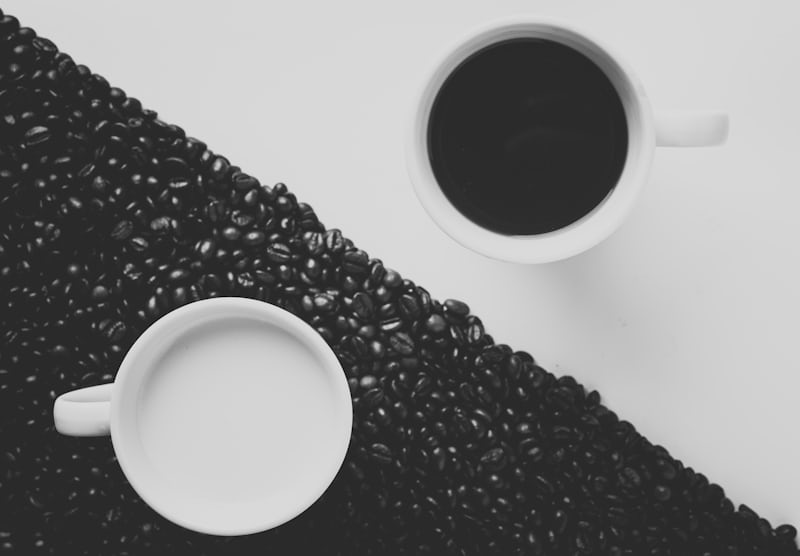
Benefits and Risks of Drinking Decaf Coffee While Pregnant
Pregnant women often turn to decaf coffee as a safer alternative during pregnancy, but understanding both the benefits and potential risks is essential for making informed choices about decaf consumption.
Benefits of Decaf Coffee During Pregnancy
Decaf coffee offers several advantages for expectant mothers who miss their regular cup of coffee:
- Significantly reduced caffeine exposure while still enjoying coffee flavor
- Contains antioxidants that may provide health benefits
- Helps maintain the coffee ritual that many women find comforting during pregnancy
- Can alleviate withdrawal symptoms for those who previously consumed regular coffee
- Allows social participation in coffee-centered gatherings without exceeding caffeine guidelines
Potential Concerns When Drinking Decaf Coffee While Pregnant
Despite these benefits, there are some considerations pregnant women should keep in mind:
- Decaffeination methods matter – some processes use chemical solvents like methylene chloride or ethyl acetate
- Acidity levels in decaf can sometimes trigger heartburn or acid reflux, which are already common during pregnancy
- Some studies suggest that even decaf coffee may increase gastric acid production
- Quality and sourcing of coffee beans may impact overall safety and health benefits

Most healthcare providers agree that moderate decaf coffee consumption poses minimal risk during pregnancy.
The key is moderation—typically 1-3 cups daily—and being aware of your total caffeine intake from all sources.If you have pregnancy complications, high blood pressure, or other health concerns, consult your healthcare provider for personalized recommendations about decaf coffee consumption during your pregnancy.
How Much Decaf Coffee is Safe During Each Trimester?
When wondering “Can I have decaf coffee while pregnant?“, it’s important to understand that safety guidelines may vary throughout your pregnancy journey. Let’s break down decaf coffee consumption recommendations by trimester.
First Trimester
During the first trimester, when embryonic development is most critical:
- Limit decaf coffee to 1-2 cups per day
- Morning sickness may naturally decrease your desire for coffee
- Some women report coffee aversion during early pregnancy- If you experience nausea, decaf might be more tolerable than regular coffee

Second Trimester
As you move into the second trimester:
- Most healthcare providers consider 2-3 cups of decaf coffee daily to be safe
- Your body has adjusted to pregnancy hormones, potentially making coffee more enjoyable again
- Heartburn may become an issue, so monitor how decaf affects your digestive comfort
- Consider spacing out your decaf consumption throughout the day
Third Trimester
In the final stretch of pregnancy:
- Continue with the 2-3 cups daily guideline for decaf coffee
- Be mindful that even decaf may contribute to: – Increased urination frequency – Potential sleep disruption – Heartburn or acid reflux issues- Some women find that cutting back further helps with pregnancy -related insomnia
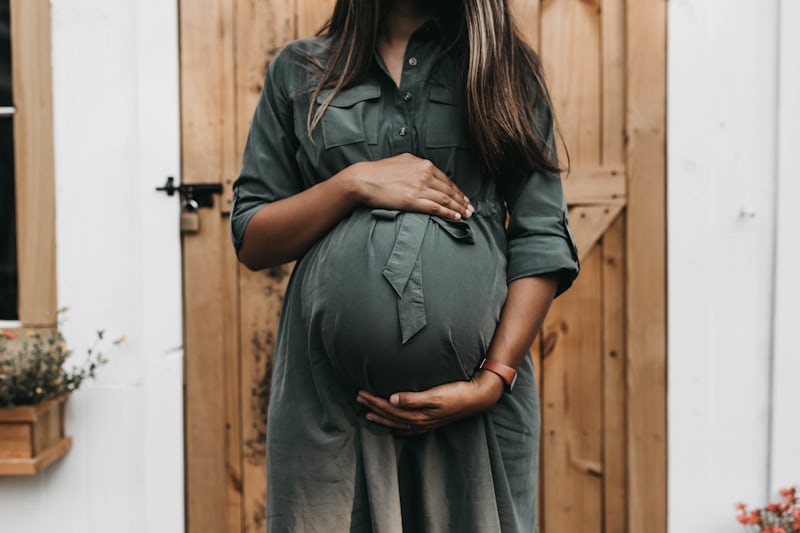
General Guidelines Across All Trimesters
Regardless of which trimester you’re in, these principles apply when drinking decaf coffee while pregnant:
- Choose high-quality decaf processed without harsh chemicals
- Stay hydrated with plenty of water alongside your decaf coffee
- Listen to your body’s signals—if decaf causes discomfort, reduce intake
- Remember that a cup of decaf still contains minimal caffeine (2-5mg)
- Count other caffeine sources in your daily total (chocolate, tea, etc.)
Always consult your prenatal healthcare provider about your specific situation, as individual health factors may influence recommendations about decaf coffee consumption during your pregnancy.
Healthier Alternatives to Decaf Coffee During Pregnancy
If you’re wondering “Can I have decaf coffee while pregnant?” but are looking to explore other options, there are several delicious and pregnancy-safe alternatives that can satisfy your coffee cravings without any caffeine concerns.

Herbal Teas and Coffee Substitutes
- Rooibos tea: Naturally caffeine-free with a rich, slightly sweet flavor
- Dandelion root coffee: Offers a similar bitter taste to coffee without caffeine
- Chicory root beverages: Has a roasted flavor profile reminiscent of coffee
- Barley cup: A grain-based hot beverage with coffee-like qualities
- Pregnancy-safe herbal teas**: Ginger, peppermint, and lemon balm (always check labels for pregnancy safety )

Nutritious Warm Beverages
- Golden milk: Made with turmeric, warm milk, and spices
- Hot cacao: Using pure cacao powder with milk for a chocolatey treat with minimal caffeine
- Warm apple cider: Comforting and naturally sweet (ensure it’s pasteurized)
- Steamed milk with vanilla: Simple yet satisfying with beneficial calcium
Refreshing Cold Options
- Fruit-infused water: Adds flavor while keeping you hydrated
- Coconut water: Provides electrolytes and natural sweetness
- Sparkling water with citrus: For when you crave something bubbly
Pregnancy-safe smoothies
- Combining fruits, yogurt, and pregnancy-friendly proteins
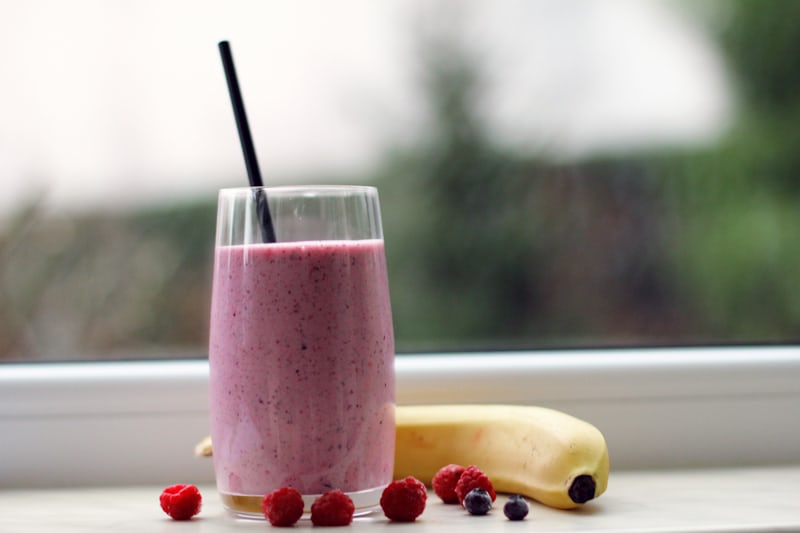
When choosing alternatives to decaf coffee while pregnant, look for options that are not only safe but also provide nutritional benefits. Many herbal teas offer specific pregnancy supports like ginger for morning sickness or raspberry leaf in later pregnancy (with healthcare provider approval). Remember that hydration is crucial during pregnancy, so whatever alternative you choose, make sure it contributes to your daily fluid intake goals. Most importantly, find beverages you genuinely enjoy, as maintaining small pleasures during pregnancy can support overall wellbeing.
Always discuss any concerns about your beverage choices with your healthcare provider, especially if you have pregnancy complications or specific dietary restrictions.
